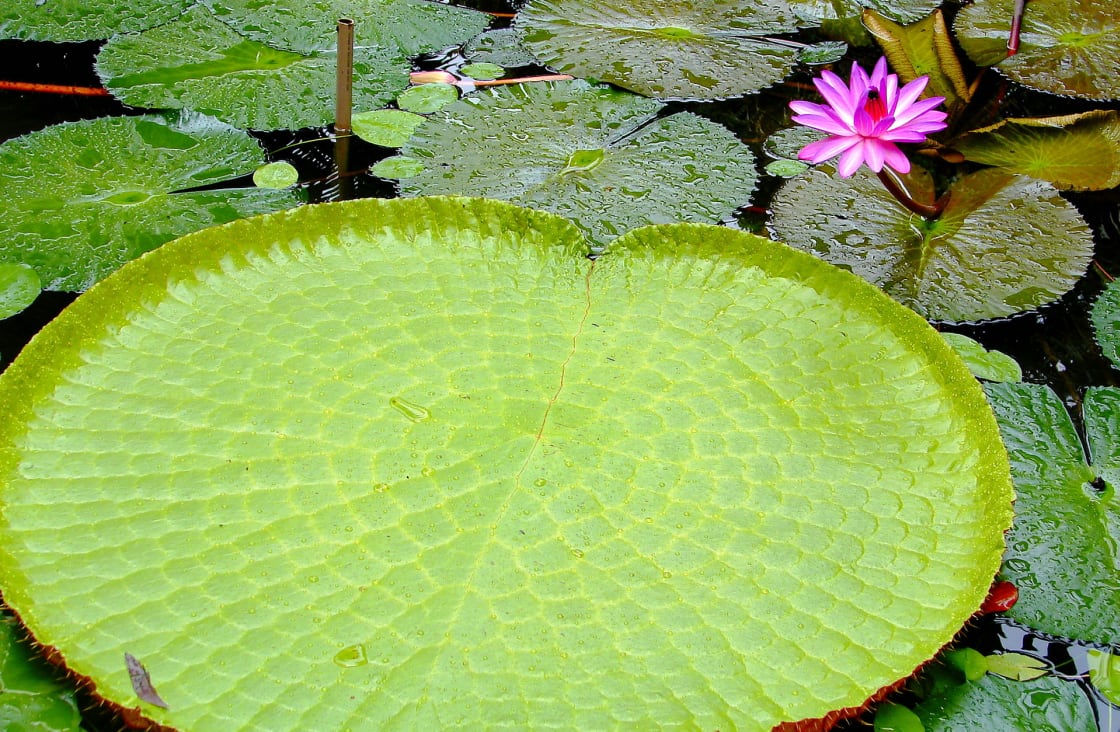Water lilies are a genus that makes up perennial plants, along with agapes, cataloes, water hyacinths or bora. These types of floating plants are characteristic of the tropical regions of South America. These types of plants are supported by spongy elements called rhizomes that allow the roots to float freely. In some places where the waters remain stagnant, these roots are formed by intertwining in such a way that they form embalmed, giving rise to true floating islands where other plants grow or some animal species take refuge.
Water lilies could be defined as floating saprophytes, capable of reaching up to meters in height. Its main structure or body is formed by rhizomes that can reach 30 cm in height, produced from a set of auxiliary shoots, which grow around its body with different angles and shapes. The flowers grow from the upper part of the plant forming a kind of spike supported by two bracts. These flowers have a tubular shape of pink or lavender, depending on the interior of which is the fruit, in which the seeds are located.
Therefore, water lilies are a little more sensitive than normal lilies, so if you are a beginner you should be more careful in terms of their cultivation and care, since this type of lily does not tolerate extreme temperatures worse and needs their environment is very similar to what they would have if they were in the middle of nature.
With this brief description we have described, as far as possible, what a lily is like and some of the differences it presents with respect to its more common relatives. Next we are going to explain in great detail how a lily should be cared for to grow healthy and strong as well as how we should cultivate this type of exotic plant.
Instructions
- Temperature and irrigation: we can normally find it as an outdoor plant, that is, uncovered in gardens, in addition to being able to see it in pots. Usually, water lilies are located in gardens with ponds, within the


















